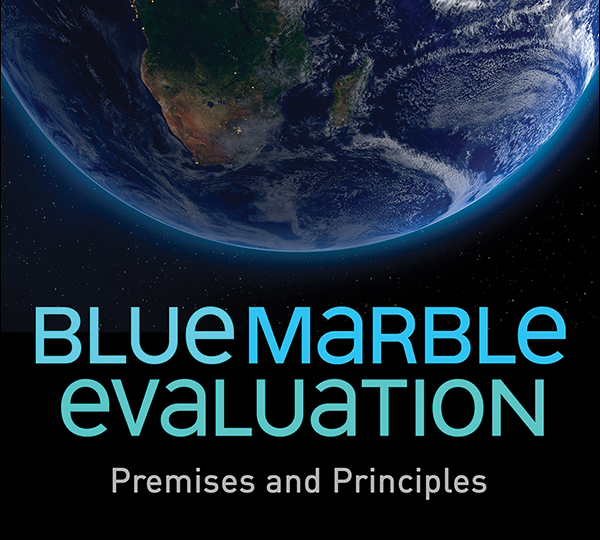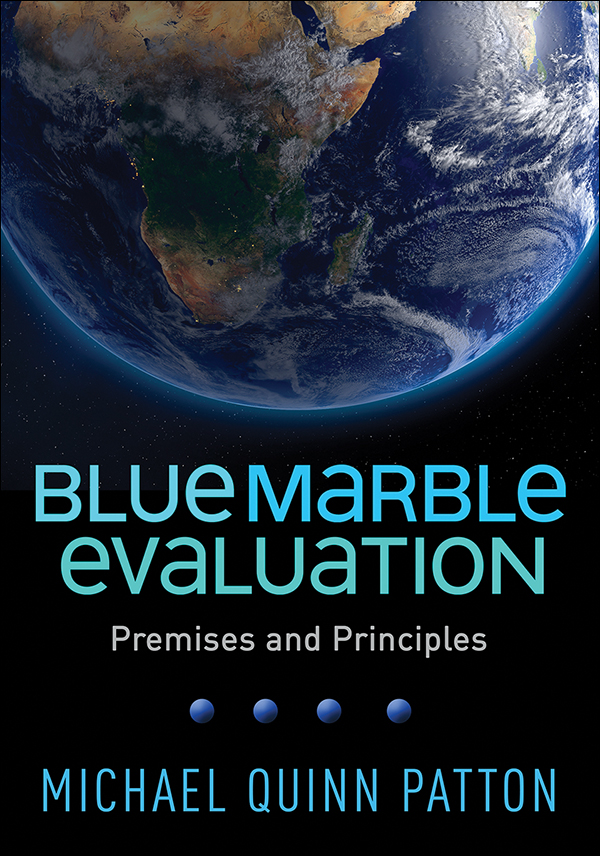Michael Quinn Patton’s new book introduces “Blue Marble Evaluation”. He explains that this book provides a “framework for developing, adapting, and evaluating major systems change initiatives involving complex networks of stakeholders” and “demonstrates how the four overarching principles and 12 operating principles of this innovative approach allow evaluators, planners, and implementers to home in on sustainability and equity issues in an intervention.” The Blue Marble Evaluation is “designed to tackle problems outside the reach of traditional evaluation practice.”
For more information about Patton’s new book, click here
Another landmark in BME development is the launch of the Blue Marble Evaluation Platform, expected to be a Community of Practice, and a place of reference for those interested and engaged in Blue Marble Evaluation. You are very welcomed to join!
Blue Marble Evaluation: Thinking in Transformational Ways at a Time When We Urgently Need To
This article by International program director Jane Maland Cady was originally published by the Global Alliance for the Future of Food and adapted here with permission.
The McKnight Foundation has supported the first of the Blue Marble Evaluation innovators — from Michael Quinn Patton and the World Savvy team, to the evaluators embedded in the Global Alliance for the Future of Food and the Collaborative Crop Research Program. This initial Blue Marble Cohort has learned from each other, challenged each other, and is actively providing critical tools and frameworks for the field. Writing on the day of the launch of Blue Marble Evaluation: Premises and Principles in Minneapolis, Jane Maland Cady, Program Director, International – McKnight Foundation, explains that the work has only begun and why it’s important to use this approach to evaluation to address the critical challenges facing our one and only planet.
To read the article in its entirety, please click here
“Blue Marble Evaluation provides sobering reading about why business as usual is not enough for dealing with multiple, urgent global challenges, and describes practical ways that evaluation can be part of effective responses. This book is relevant for anyone engaged in global change initiatives or interested in the global impact of locally focused efforts. Once again, Patton challenges us to rethink evaluation—and shows us how to do so.”

—Patricia Rogers, PhD, Director, BetterEvaluation; Professor of Public Sector Evaluation, RMIT University, Australia

